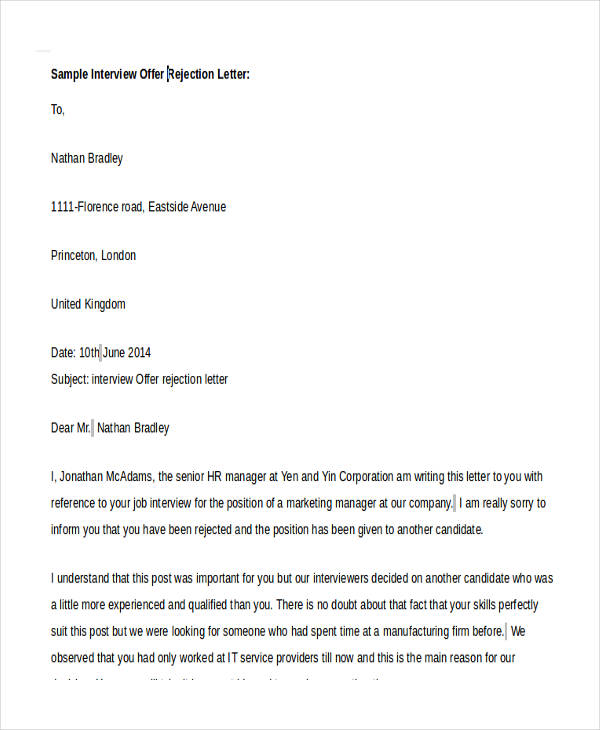Layoff Reversal: Accepting Or Rejecting A Job Offer From Your Former Employer

Table of Contents
Evaluating the Circumstances of Your Layoff
Understanding the reasons behind your initial layoff is paramount in deciding whether to accept a reversal offer. Was it a company-wide decision, performance-related, or due to economic factors? This understanding will inform your assessment of the offer's long-term viability.
Reasons for the Initial Layoff:
The circumstances of your layoff significantly impact your decision. Consider these points:
- Company-wide restructuring: If the layoff was part of a broader restructuring, investigate whether the company has addressed the underlying issues. Have they improved their financial stability or implemented successful changes? A successful restructuring might indicate a healthier and more secure environment for your return. Look for evidence of positive changes and improved company performance.
- Performance issues: If your layoff stemmed from performance concerns, honestly assess your past performance. Have you identified areas for improvement? Can you demonstrate growth and address any past shortcomings? Be prepared to discuss these issues during the interview process and show your commitment to excelling in the role. This is crucial to alleviate concerns and demonstrate your value to the company.
- Economic downturn: If the layoff resulted from an economic downturn, evaluate the company's current financial health. Has the situation improved? Research the company's recent financial performance to gauge their long-term stability. Examine industry trends and the company's position within its market to better understand the risk involved.
Changes Since Your Layoff:
The landscape may have shifted since your departure. Evaluate these changes carefully:
- New leadership: A change in leadership can significantly alter the company culture and work environment. Research the new management style and consider whether it aligns with your preferences and working style. A positive change in leadership could improve the overall work experience.
- Company restructuring: Understand how the restructuring has impacted your previous role and the company as a whole. Has the restructuring led to increased efficiency or new opportunities? Improved processes and more efficient workflows can translate into a more positive working experience.
- New technologies or strategies: Assess the impact of new technologies or strategies on your role and workload. Are these changes positive or negative? Do they require additional training or present challenges? Understanding these aspects will help you assess the potential workload and your suitability for the role.
Analyzing the Job Offer Itself
Beyond the circumstances of your layoff, carefully analyze the specifics of the job offer itself.
Compensation and Benefits:
Scrutinize the financial aspects of the offer:
- Salary: Is the offered salary competitive with similar roles in your field and location? Consider inflation and current market rates. Research salary data for comparable positions to ensure fair compensation.
- Benefits: Review the benefits package carefully. Have health insurance, retirement plans, or other perks changed since your departure? A comprehensive benefits package can significantly enhance the overall value of the offer.
- Severance pay: Consider any severance pay you received. Accepting the offer might mean foregoing potential additional severance benefits. Account for this in your financial assessment.
Job Responsibilities and Role Changes:
Has the job description evolved since your departure?
- New technologies: Are you comfortable with the required technologies and skills? If not, will the company provide training or support? Assess your proficiency in the required technologies to avoid potential difficulties.
- Increased workload: Is the increased workload realistic and fairly compensated? Be sure to clarify expectations and workload to avoid overcommitment.
- Reporting structure: Are there changes in your reporting structure or team dynamics? Consider the potential impact of these changes on your work satisfaction and productivity.
Considering Personal Factors and Alternatives
Before making a decision, consider your personal situation and other options.
Your Current Financial Situation:
Assess your financial standing:
- Job search progress: How far along are you in your job search? Do you have other promising offers? This significantly influences the urgency and desirability of the reversal offer.
- Savings and emergency fund: Evaluate your financial cushion. Can you comfortably decline the offer if it doesn't meet your needs? A robust emergency fund gives you more negotiating leverage.
- Living expenses: Consider if the offered compensation aligns with your living expenses. Can you maintain your current lifestyle with this offer? Ensure the financial aspect is viable for your individual circumstances.
Career Goals and Long-Term Prospects:
Align the offer with your career aspirations:
- Growth opportunities: What opportunities for advancement exist within the company? Does this offer align with your long-term career goals? Assess potential career paths and growth within the organization.
- Learning and development: Will the role provide opportunities for skill enhancement and professional development? This factor is crucial for career advancement and long-term prospects.
- Company culture: Is the company culture still a good fit for you? Consider the work environment and its impact on your overall job satisfaction. Company culture plays a significant role in employee engagement and well-being.
Conclusion
A layoff reversal presents a complex decision. Carefully evaluating the circumstances surrounding your initial layoff, thoroughly analyzing the new job offer, and honestly assessing your personal factors and alternatives are all crucial steps. Weigh the pros and cons of a layoff reversal and make a decision that aligns with your short-term and long-term career goals and financial stability. Don’t rush the process; take your time to make an informed choice regarding this layoff reversal opportunity. Consider all the factors discussed above to determine if this layoff reversal is the right decision for you.

Featured Posts
-
 Trump Administrations Pressure Campaign Against Europes Ai Regulations
Apr 26, 2025
Trump Administrations Pressure Campaign Against Europes Ai Regulations
Apr 26, 2025 -
 Worlds Tallest Abandoned Skyscraper Construction To Restart After Decade Long Halt
Apr 26, 2025
Worlds Tallest Abandoned Skyscraper Construction To Restart After Decade Long Halt
Apr 26, 2025 -
 Pentagon In Turmoil Exclusive Interview Reveals Leaks And Internal Disputes
Apr 26, 2025
Pentagon In Turmoil Exclusive Interview Reveals Leaks And Internal Disputes
Apr 26, 2025 -
 Ceos Sound Alarm Trump Tariffs And Economic Uncertainty
Apr 26, 2025
Ceos Sound Alarm Trump Tariffs And Economic Uncertainty
Apr 26, 2025 -
 Full List Celebrities Affected By The Palisades Fire
Apr 26, 2025
Full List Celebrities Affected By The Palisades Fire
Apr 26, 2025
